You often want to define variable values that are different for each tenant. For example:
- A database server name or connection string
- A tenant-specific URL
- Contact details for a tenant
If you were using an untenanted project, you would have previously defined these values in the project itself. With a tenanted project, you can set these values directly on the tenant for any connected projects.
Variable templates
Tenant variable values can be provided in one of two ways:
Both of these methods use the variable templates feature.
Which variable templates apply to each tenant?
When you connect a tenant to a project, variable templates defined by the project itself, or by included variable sets, will be required by the tenant.
- Variable Set templates will be collected once - they are considered to be constant for the tenant. Think of these like “custom fields” for your tenants.
- Project variable templates will be collected once for each project/environment combination the tenant is connected to. Think of these like database connection settings for the specific tenant/project/environment combination.
By carefully designing your variable templates you can implement complex multi-tenant deployment scenarios.
Project variables
Project variables allow you to specify a variable that a tenant can change. A perfect example would be a connection string or a database server. You define project variables using project templates.
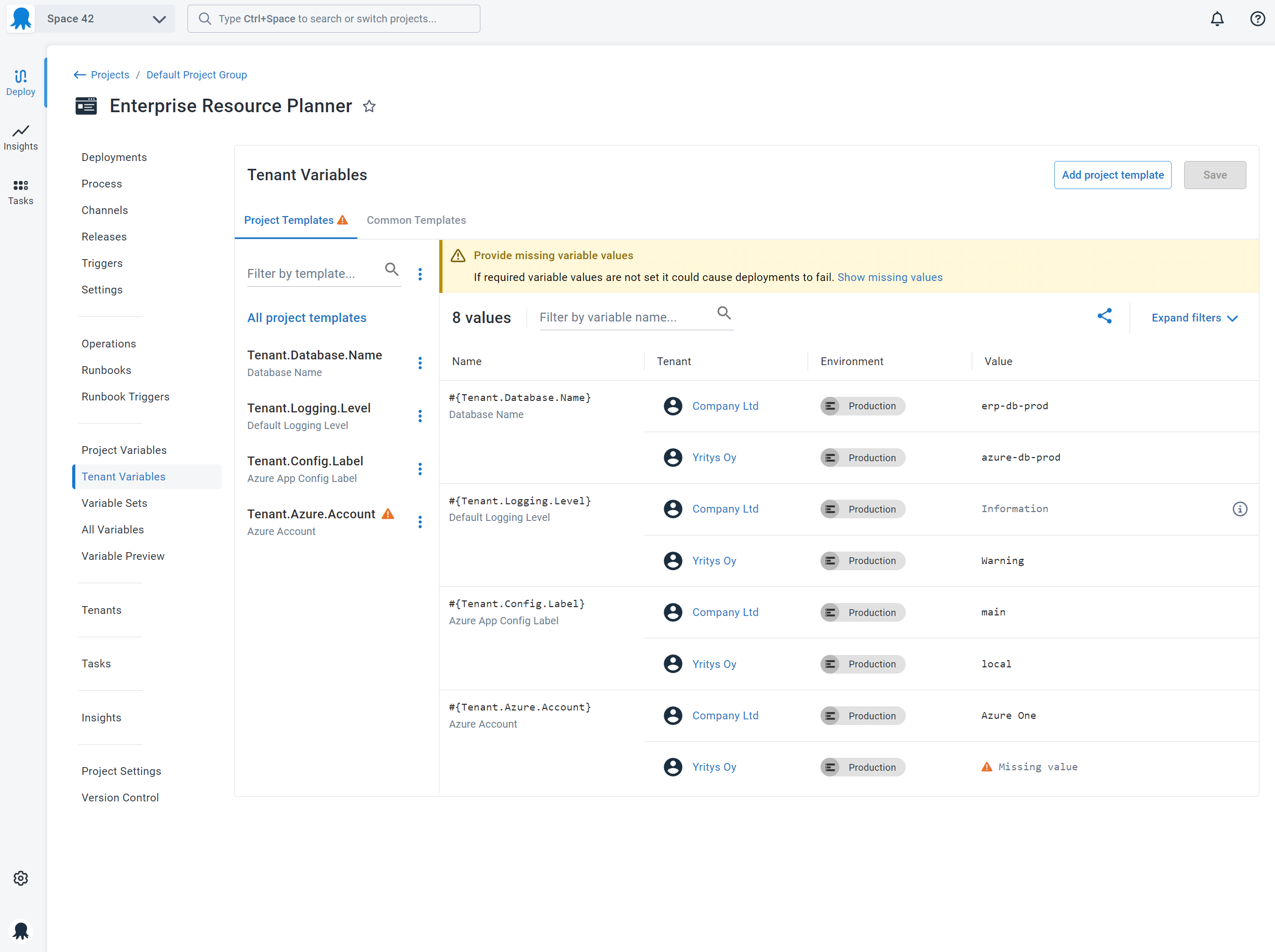
You can specify the variable type for the project template, just like regular variables. You can also provide a default value which the tenant can overwrite.
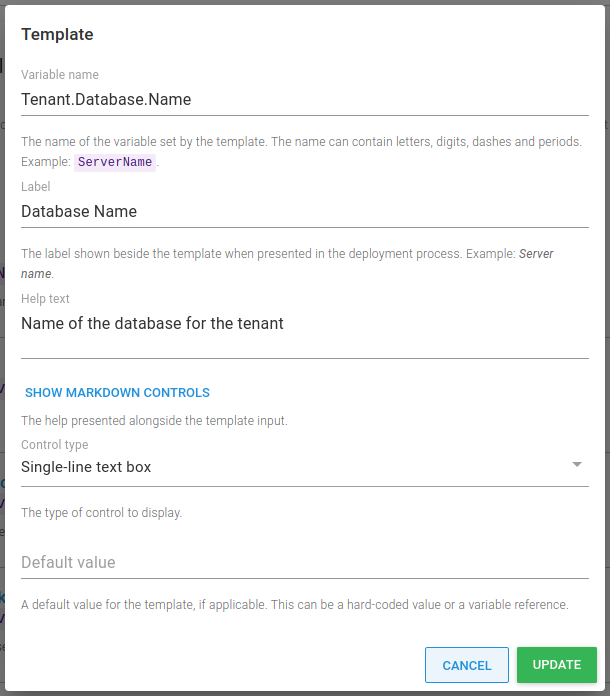
You can view and edit values for project’s tenants and environments on a single screen
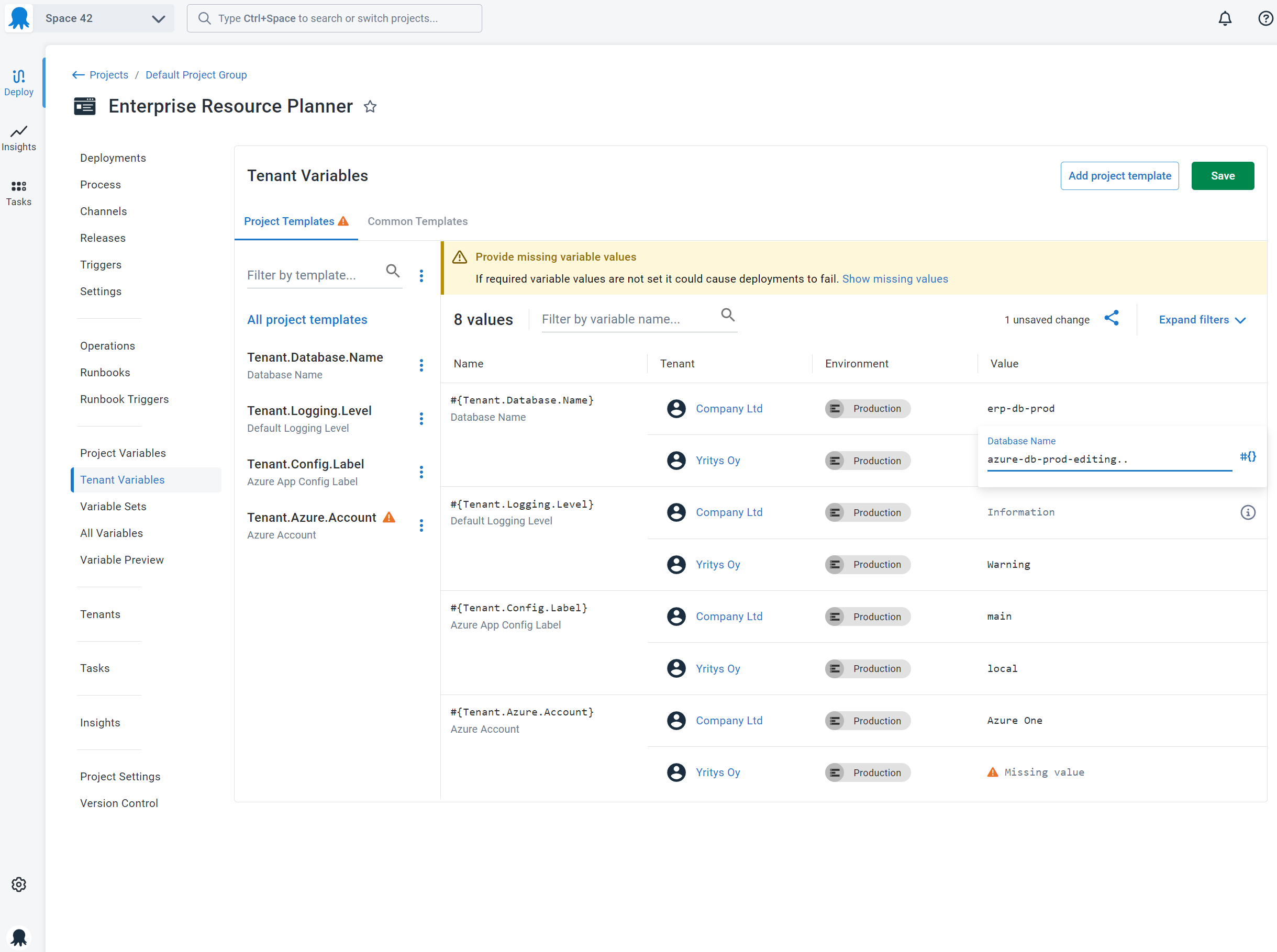
You can also set values for these variables on the tenant variables screen.
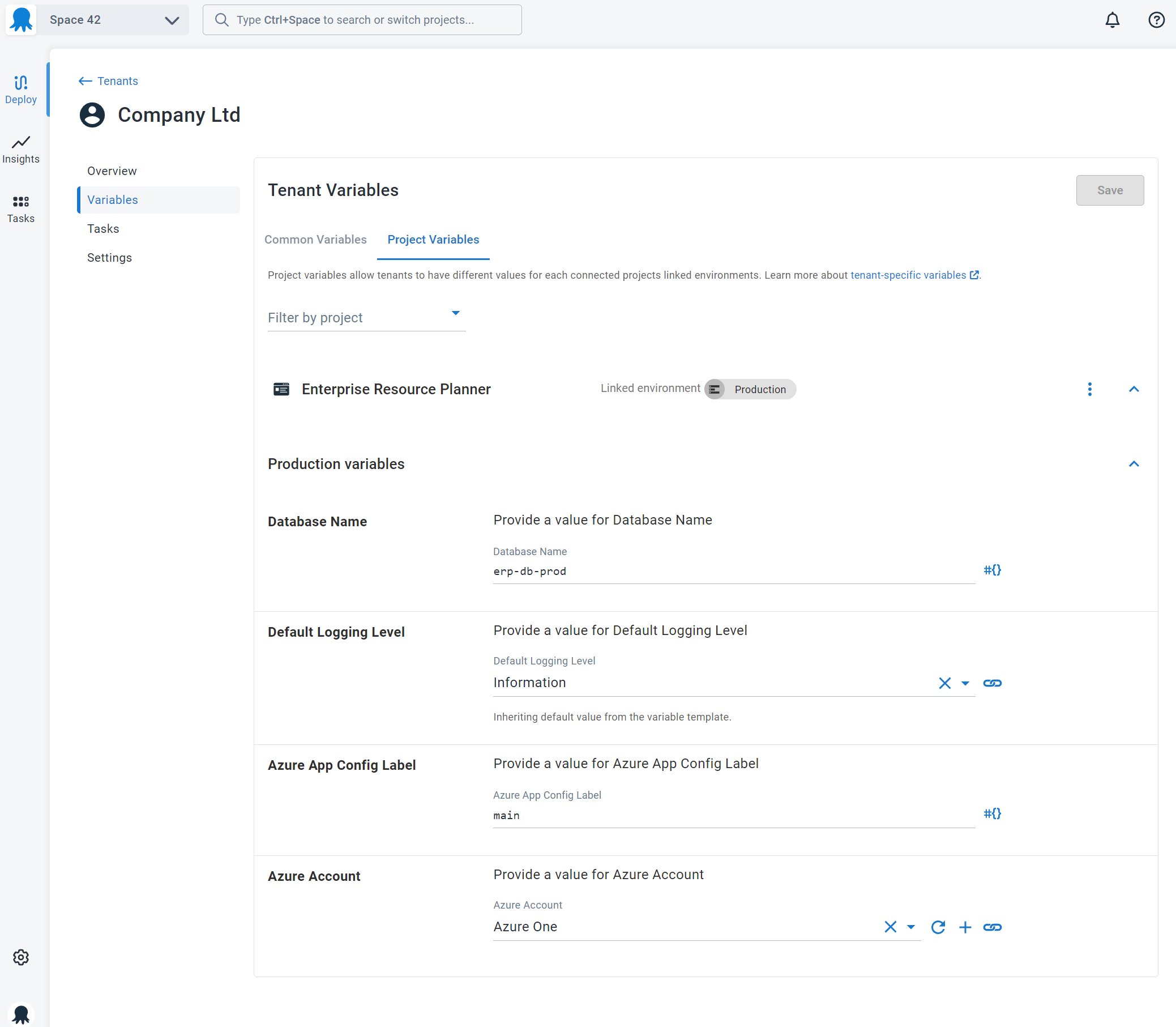
The great thing about project template variables is that they are treated like any other variable, and can be used in steps like regular project variables.

Scoped project variables will be available for early access from Octopus version 2025.2. Please contact michelle.obrien@octopus.com if you would like to turn this feature on.
To assign an environment scope to your project variable, use the Tenant Variables section of the project’s page, or the Tenant Variables section of the tenant’s page.
For more information on assigning scope, see assigning scopes.
Common variables
Common variables are similar to project variables. The main difference between the two is that common variables can be used across multiple projects, and they aren’t scoped to environments. Common variables are defined using variable set templates
For example, if we wanted to define an abbreviation for the tenant to use in a deployment or runbook, we can configure a variable template for the variable set.
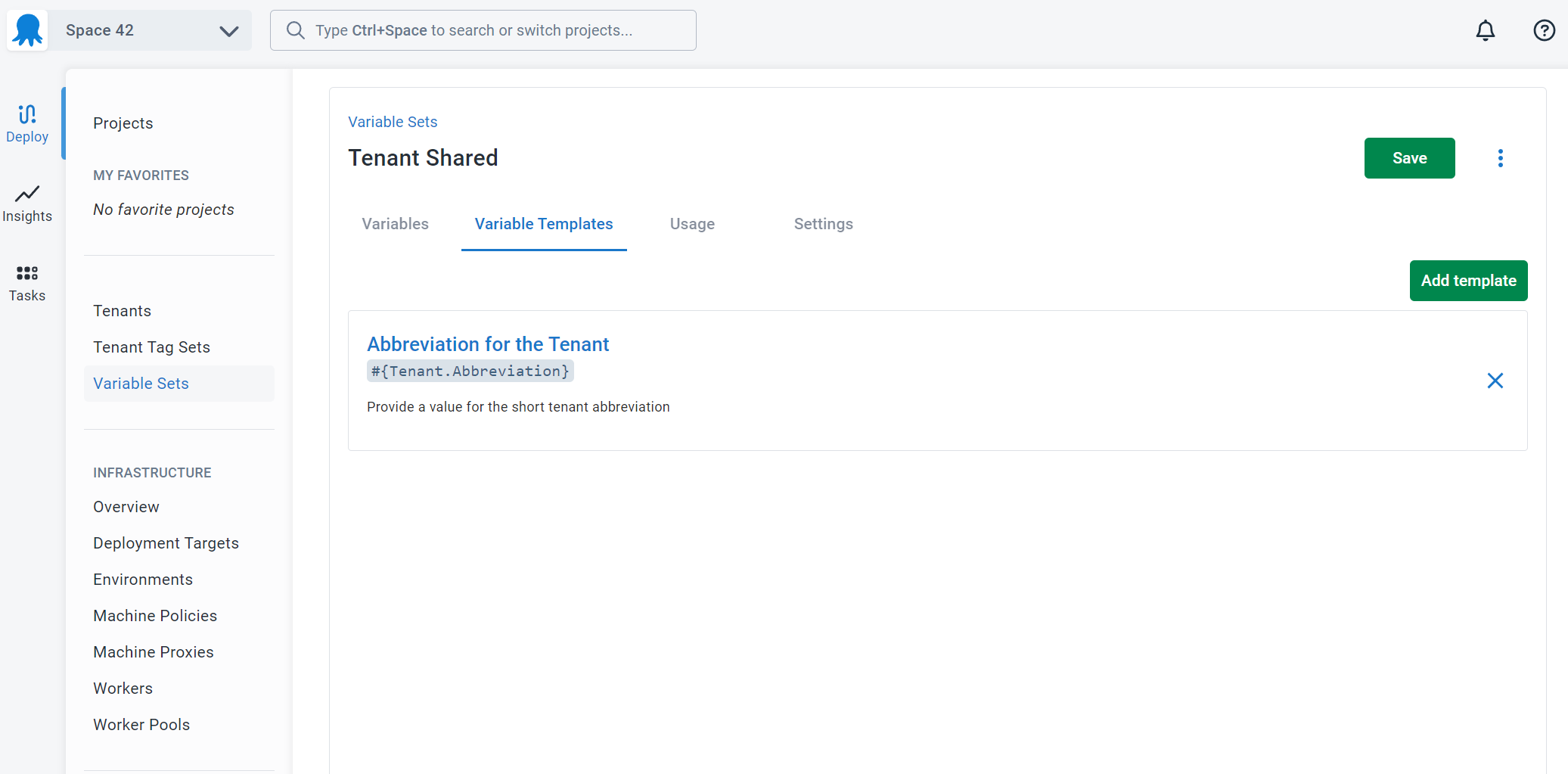
To include common variables for a tenant, you must add the variable set in the tenant connected project.
Just like project variables, common variable values are supplied at the tenant level.

Scoped common variables will be available for early access from Octopus version 2025.2. Please contact michelle.obrien@octopus.com if you would like to turn this feature on.
To assign a scope to your common variable, use the Tenant Variables section of the project’s page, or the Tenant Variables section of the tenant’s page. The common variable can then be used across all projects that have a connection to that environment.
For more information on assigning scope, see assigning scopes.
Common variable permissions
When editing common variables for a tenant, a user requires variable editing permission (VariableEdit) for the tenant as well as all projects linked to the tenant.
This can be achieved by scoping a user role to:
- All projects individually
- The correct project groups
- A combination of individual projects and project groups
When using the scoped variables feature from octopus version 2025.2, a user will require variable editing permission for the tenant, all projects and all environments to edit common variables for a tenant. In addition to above, a user may also need the (VariableEdit) permission scoped to at least one of the following:
- For scoped common variables, all environments in the variable’s scope
- For unscoped common variables, all environments connected to the tenant
- Unrestricted
VariableEditaccess for environments
To view a common variable, a user will require view permissions to at least one environment in the variable’s scope.
If you don’t have the necessary permissions, you will receive an error like this:

Snapshots
When you create a release in Octopus we take a snapshot of the deployment process and the current state of the project variables.
However, we don’t take a snapshot of tenant variables. This enables you to add new tenants at any time and deploy to them without creating a new release. This means any changes you make to tenant-variables will take immediate effect.
Help us continuously improve
Please let us know if you have any feedback about this page.
Page updated on Sunday, March 10, 2024